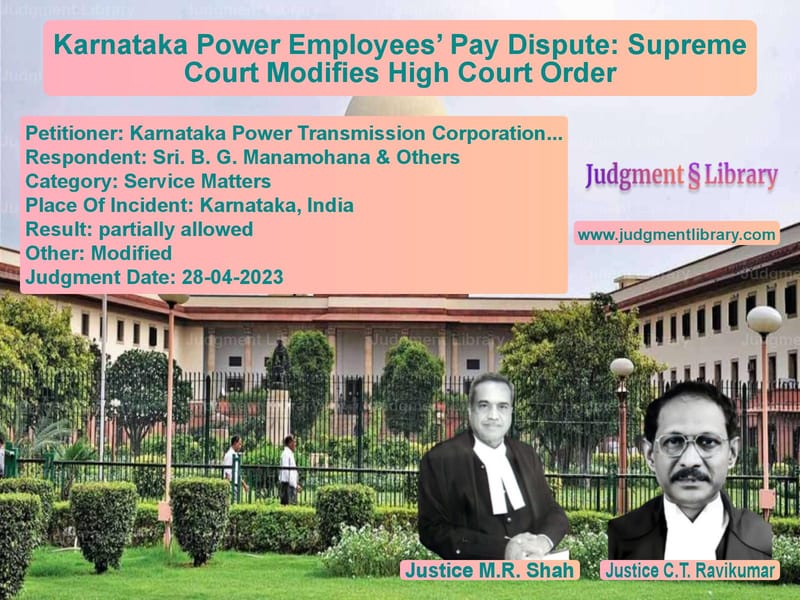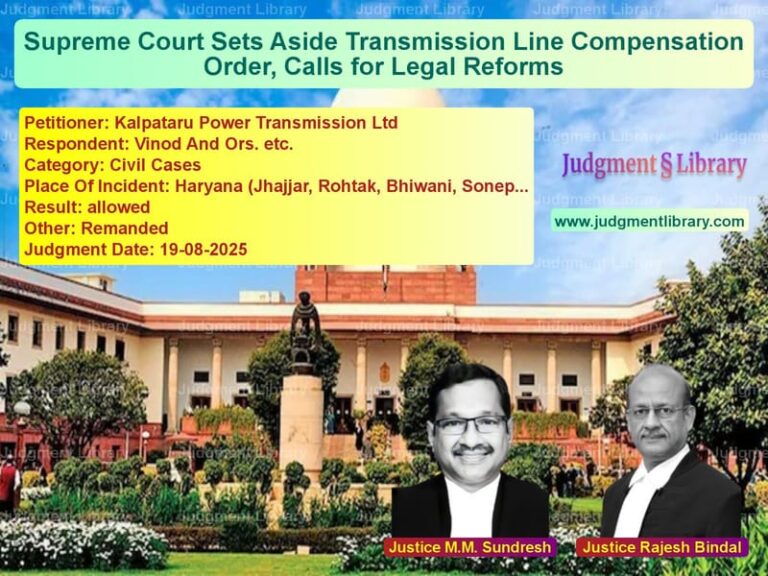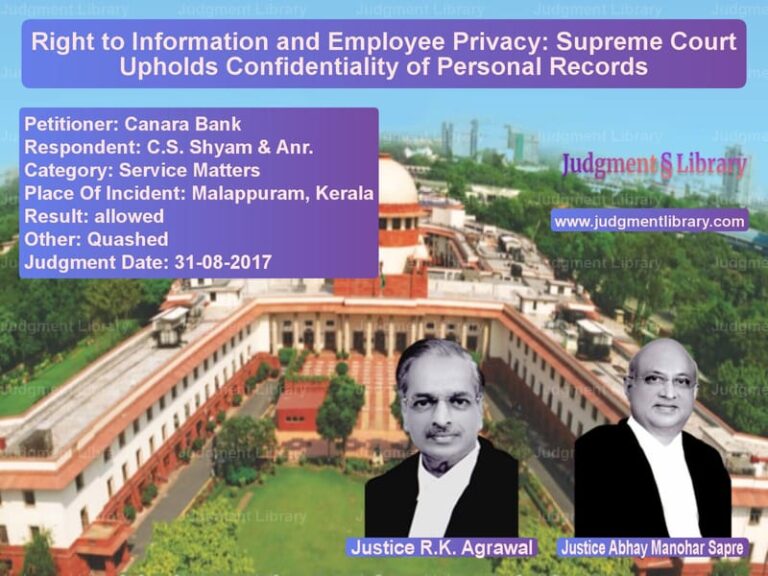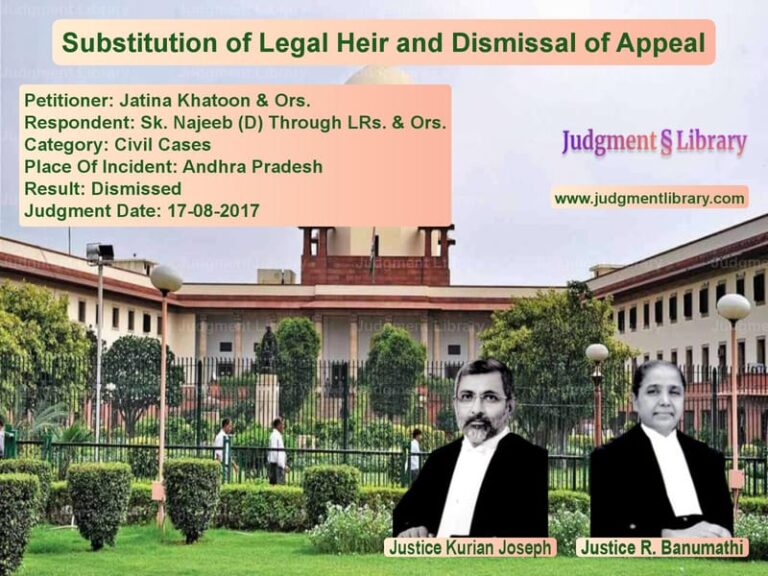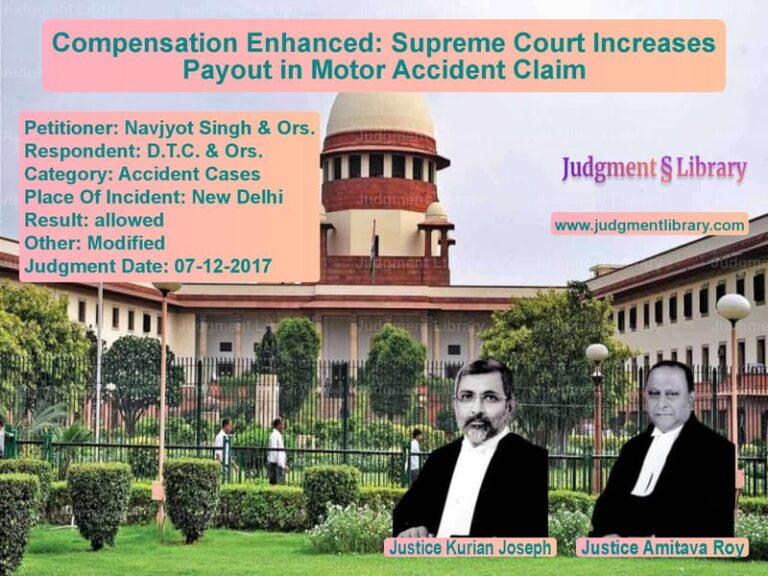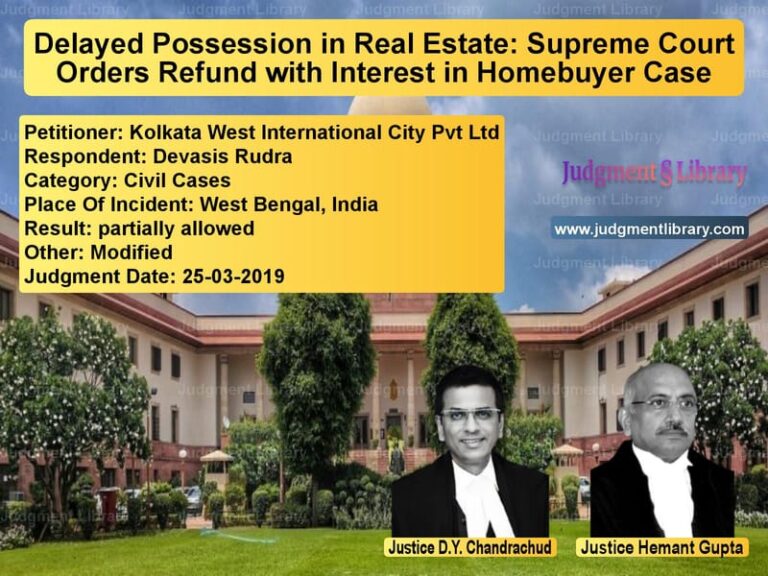Karnataka Power Employees’ Pay Dispute: Supreme Court Modifies High Court Order
The Supreme Court recently ruled on a dispute involving Karnataka Power Transmission Corporation Limited (KPTCL) and its employees regarding the revision of pay scales. The case concerned whether Assistant Executive Engineers (Electrical) who were appointed in 2007 were entitled to additional pay benefits granted through a 2008 Departmental Order (D.O.). The Supreme Court partially overturned the High Court’s decision, stating that while the employees were eligible for the additional 2% pay hike, it was subject to performance targets and other conditions set out in the 2008 order.
Background of the Case
The dispute arose when the KPTCL employees, appointed in 2007, claimed entitlement to a revised pay scale that included a 12% hike (10% fixed, plus an additional 2%). The corporation had issued orders in 2006 and 2008 revising pay scales for its employees. However, the additional 2% hike was contingent upon performance targets. The corporation refused to extend this benefit to the petitioners, arguing that they were not in service when the pay revision was introduced.
The employees filed a writ petition in the Karnataka High Court, which ruled in their favor. The High Court directed KPTCL to apply the revised pay scale from the date of their appointment and also awarded 8% interest on arrears. Dissatisfied with this ruling, KPTCL appealed to the Supreme Court.
Petitioner’s Arguments (KPTCL)
- The additional 2% pay revision was meant for employees who were in service as of April 1, 2003.
- The petitioners, appointed in 2007, did not meet the eligibility criteria and should not receive retrospective benefits.
- The High Court erred in granting automatic pay revision without considering the performance-based criteria outlined in the 2008 D.O.
- Providing these benefits without performance evaluation would create financial liabilities for the corporation.
Respondent’s Arguments (Employees)
- The 2008 D.O. did not explicitly exclude employees appointed after 2003.
- The corporation’s refusal to grant the additional 2% hike was discriminatory.
- Other similarly placed employees had already received the pay revision.
- The pay revision should be applied uniformly to all Assistant Executive Engineers (Electrical), regardless of their date of appointment.
Supreme Court’s Observations
- The court acknowledged that the 2008 order allowed a 2% additional hike, but it was conditional on achieving performance targets.
- The petitioners, despite being appointed later, were still eligible for the 2% increase if they met the conditions outlined in the 2008 order.
- The High Court erred in granting the pay revision automatically from the date of appointment without considering the requirement of performance-based evaluation.
- While the employees could claim the benefit, they must satisfy the stipulated conditions, including appraisal assessments conducted in April 2009 and April 2010.
Key Judicial Findings
- The Supreme Court ruled that the original writ petitioners were entitled to the additional 2% increase, but only if they met the prescribed performance targets.
- The decision to automatically grant the 2% hike from the date of appointment was erroneous.
- The court modified the High Court’s order and directed KPTCL to assess the petitioners’ eligibility based on their performance.
Final Judgment
The Supreme Court ruled in favor of a modified decision:
- The High Court’s direction to automatically grant the 2% pay hike from the date of appointment was set aside.
- The employees were entitled to the 2% increase, but only upon achieving the prescribed performance targets.
- KPTCL was directed to conduct necessary evaluations to determine eligibility for the additional pay.
- The court removed the interest payment on arrears granted by the High Court.
Implications of the Judgment
The ruling provides important clarity on pay revisions and employment policies:
- Conditional Pay Increments: Employees must meet specific performance criteria before receiving financial benefits.
- Standardized Wage Policies: Employers must ensure pay revisions are applied fairly, but not arbitrarily.
- Judicial Oversight on Employment Disputes: Courts will intervene if employees are unfairly denied benefits but will also ensure due process is followed.
Conclusion
The Supreme Court’s decision in Karnataka Power Transmission Corporation Ltd. v. B.G. Manamohana reinforces the importance of performance-based pay revisions. While the employees were found eligible for the revised pay, their entitlement depended on meeting the performance conditions set by KPTCL. The judgment balances employee rights with the employer’s need for accountability in financial decisions.
Petitioner Name: Karnataka Power Transmission Corporation Limited.Respondent Name: Sri. B. G. Manamohana & Others.Judgment By: Justice M.R. Shah, Justice C.T. Ravikumar.Place Of Incident: Karnataka, India.Judgment Date: 28-04-2023.
Don’t miss out on the full details! Download the complete judgment in PDF format below and gain valuable insights instantly!
Download Judgment: karnataka-power-tran-vs-sri.-b.-g.-manamohan-supreme-court-of-india-judgment-dated-28-04-2023.pdf
Directly Download Judgment: Directly download this Judgment
See all petitions in Employment Disputes
See all petitions in Promotion Cases
See all petitions in Pension and Gratuity
See all petitions in Judgment by Mukeshkumar Rasikbhai Shah
See all petitions in Judgment by C.T. Ravikumar
See all petitions in partially allowed
See all petitions in Modified
See all petitions in supreme court of India judgments April 2023
See all petitions in 2023 judgments
See all posts in Service Matters Category
See all allowed petitions in Service Matters Category
See all Dismissed petitions in Service Matters Category
See all partially allowed petitions in Service Matters Category

